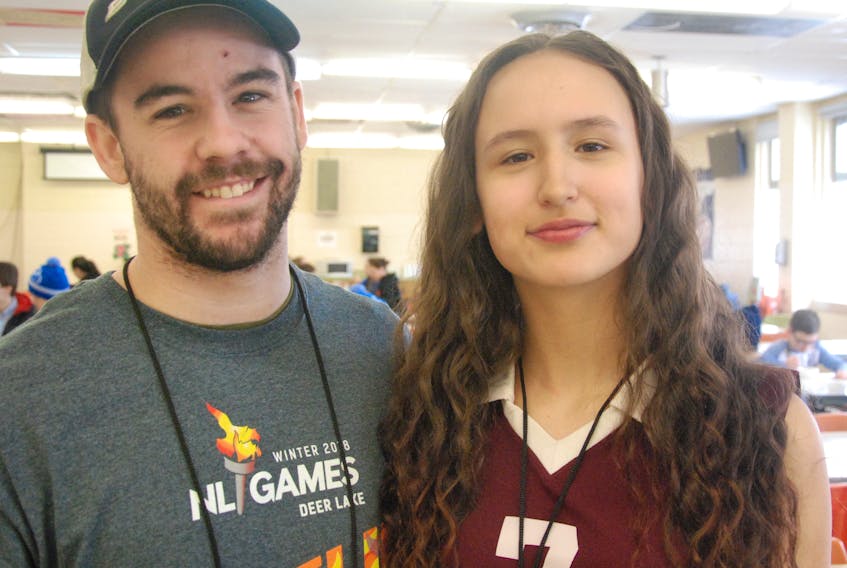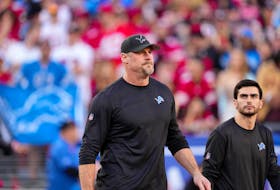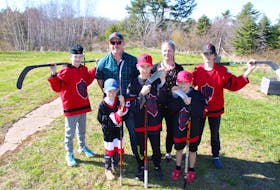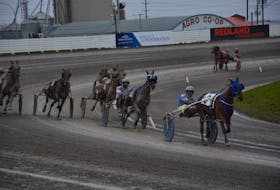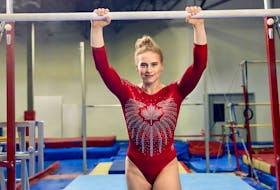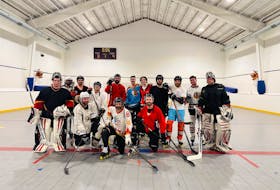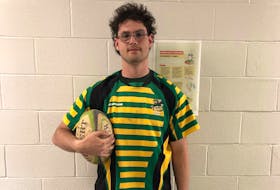Pulling together 12 female volleyball players from seven different costal Labrador communities and quickly preparing them for competition in the 2018 Newfoundland and Labrador Winter Games in Deer Lake was a bit of logistical nightmare for Shane Morgan, but he’s happy to have done it, given the significance of his work.
Morgan, a native of Lewisporte, started a female volleyball program in Northwest River three years ago when he took a teaching position at Lake Melville School. He became coach for the Team Indigenous female volleyball team as a result of a request from Todd Winters of Aboriginal Sport and Recreation.
This is the first time a Team Indigenous has been entered in the Newfoundland and Labrador Winter Games. There was also a male volleyball team wearing the new colours during the Games’ first half, which ended Tuesday.
Today is turnaround day, with first-half athletes leaving and those who will be competing during the remainder of the week, arriving on the province’s west coast.
Related
Brad Gushue's nephews competing in curling at Winter Games
The players on Morgan’s volleyball didn’t get to spend much time together before making the trip to Deer Lake. They managed just a few hours in the gym the night before departure. Still, they managed to push their opponent to three sets in two out of the three matches they played at the Games
“To see the product they’ve been able to put on the floor has been nothing short of amazing,” said Morgan, who admits he didn’t realize the athletic ability of youth in small coastal communities until he went north.
“(It’s amazing) to see how hard they are working and how much they love sports,” he said.
Morgan believes the debut of Team Indigenous at the Games is important news for athletes, especially those from Labrador, who want to pursue a sport on a competitive level.
“It’s great that they’re finally getting exposure,” he said. “I think with a lot of the cultural diversity and the cultural awareness that’s going on in the media, it’s really good that the Winter Games has stepped up and helped us (add to) an awareness about indigenous culture.”
Brianna Wolfrey of Rigolet was having a great time with her friends in the athletes’ village after finishing up a morning session on the volleyball court.
She was happy to see Team Indigenous accepted into the Games and was especially excited about meeting new people and sharing her culture. That latter is something that kept popping up in conversations with athletes from the other regions.
She’s been glad to be able to provide insight.
“It’s good letting people know who we are,” she said. “It’s good that we’re finally being recognized and getting a chance to show people how good we are.
“It makes me feel really proud.”
The Western Star

